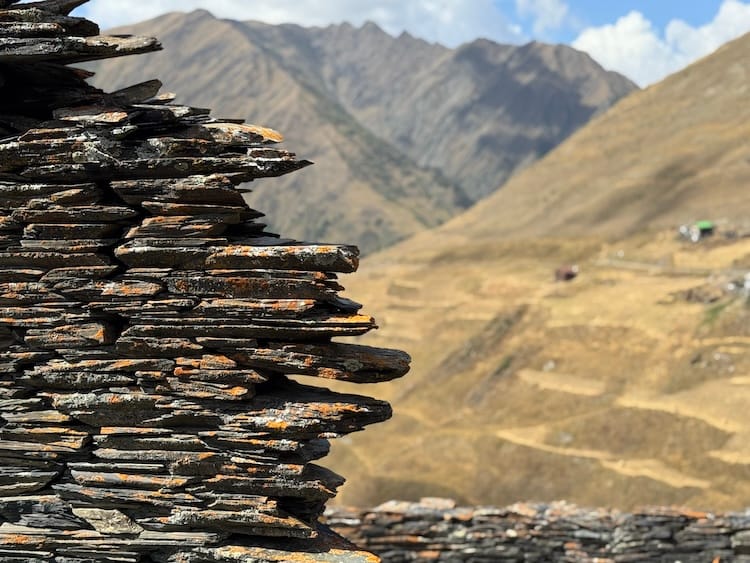Georgia Revisited
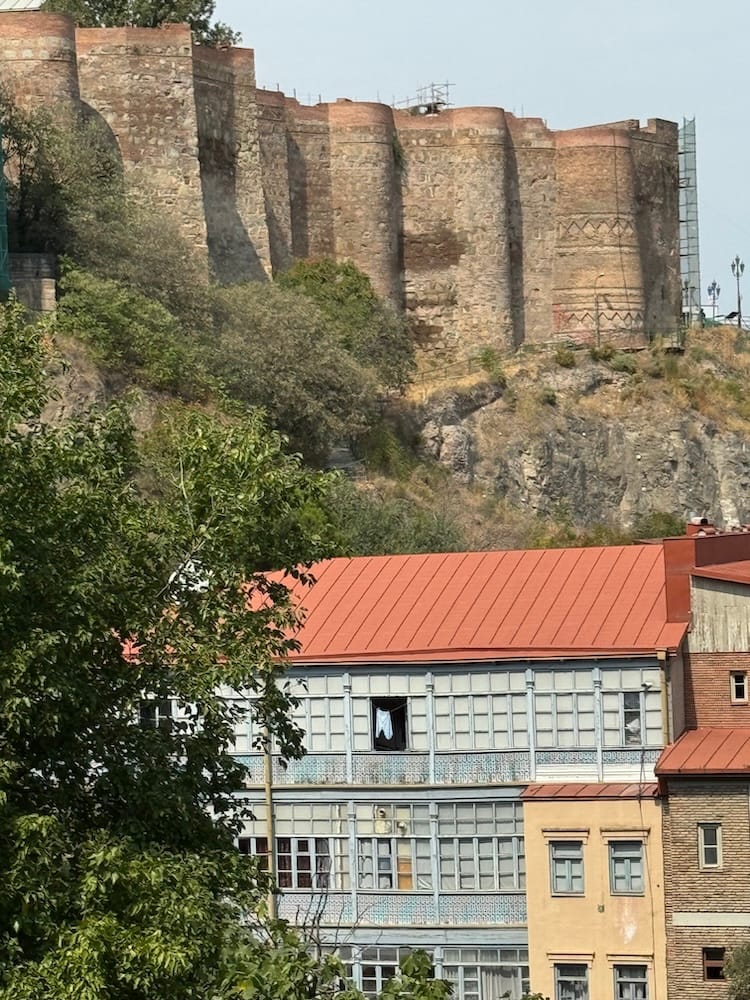
Friday, 12 September
“How are your emotions?” our guide in Tusheti National Park asked near the end of our day-trip to this remote, mountainous region in the northeastern corner of the country of Georgia.
“My emotions are great,” I replied. Tip-top, in fact, both literally and metaphorically: I was standing near the top of the world and delighted to be back in Tusheti, in Georgia generally. I had also just taken my first-ever helicopter ride.
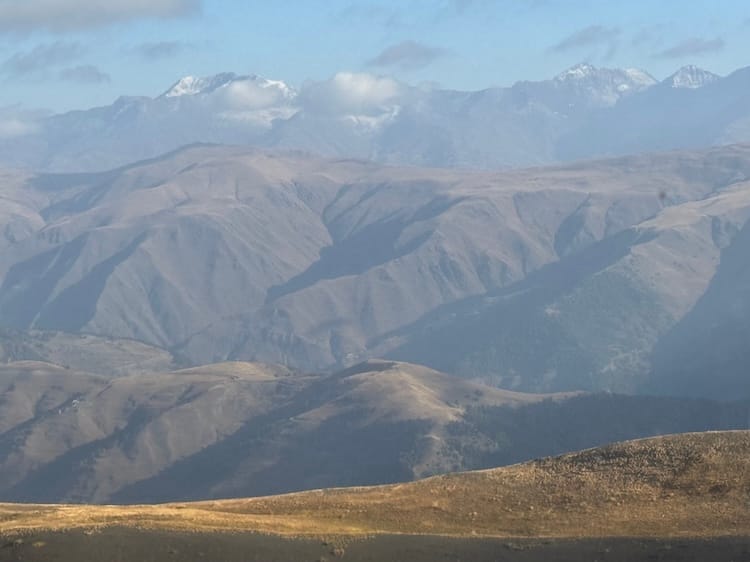
A year after my trip to Armenia organised by CNF, the nature conservancy directed by my husband David, I was back in the region at the invitation of Georgia Capital, an investment group where David is on the Board of Directors. The CEO Irakli Gilauri wanted to give the Board and their partners a trip to remember, and unforgettable it was (thank you, Eka and Keti, too!).
If you read last year's blog entry, you will notice many similarities between the two South Caucasus countries. Georgia may be 134% larger at 69,700 sq kms/26,900sq miles, but it still has only half the surface area of the American state with which it shares a name (for a European comparison, it's just smaller than the Republic of Ireland). At 3.7 million people, it is just over a quarter of the US state's population and two-thirds that of Ireland. But like Armenia, Georgia the country makes up for its limited size with the depth of its history and culture, the breadth of its nature.
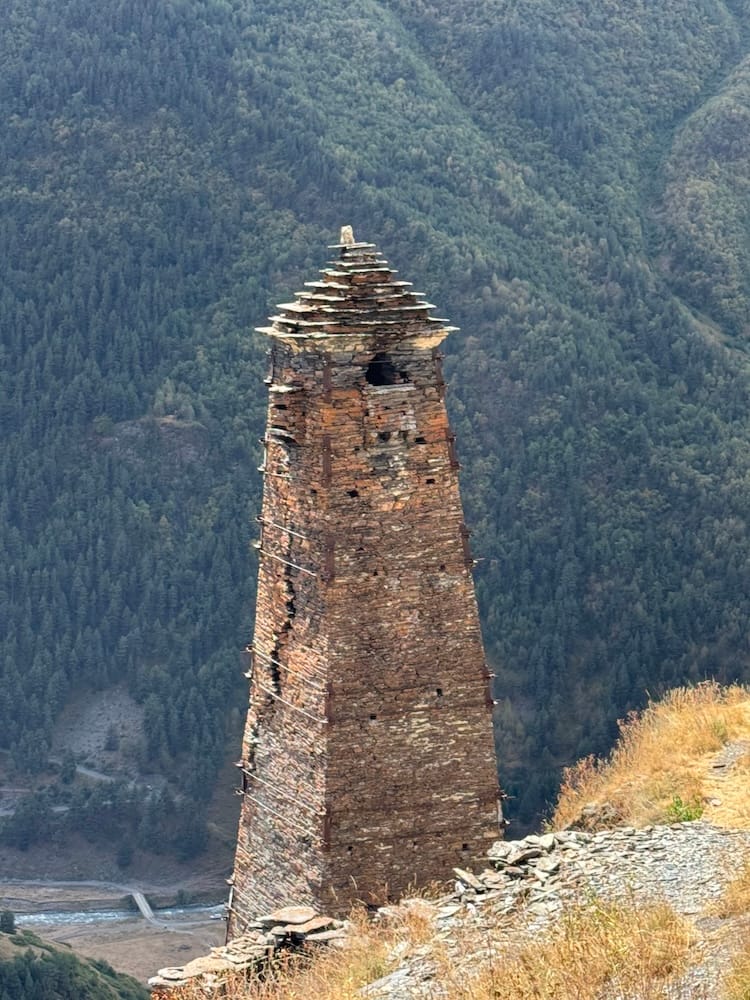
Its history stretches way back: the earliest known anthropoid in Eurasia, Dmanisi hominins, left fossil remains in the eponymous Georgia town 1.8 million years ago. According to Greek myth, Prometheus was banished by Zeus to the peak of Mount Kazbegh, and Jason retrieved the Golden Fleece from Colchis, now western Georgia. Their claim to being the oldest wine makers, using amphorae called qvevri, is (sorry Armenia!) more credible than their southern neighbour's.
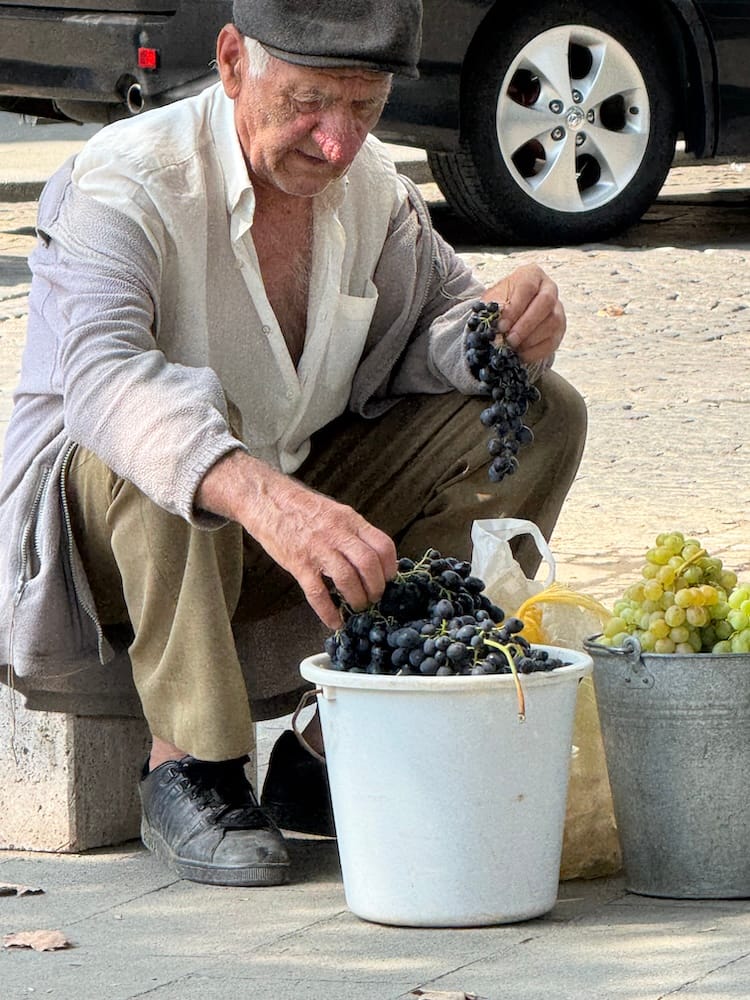
Both countries have been invaded by Turks, Persians, Mongols, Russians - just name the Eurasian empire - both are on the silk road and a bridge between east and west.
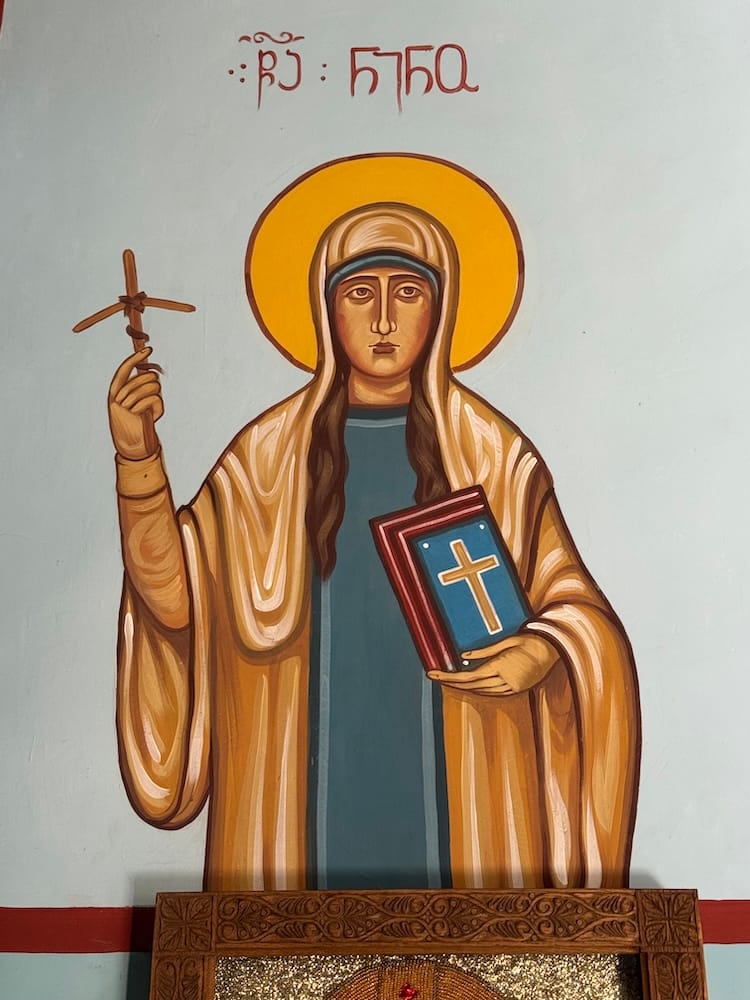
But similarities only go so far. A particularity of Georgian history is the extraordinary role women have played. The subsequently sainted Nino (above), fleeing a still pagan Constantinople, was hiding in a rose bush when she received a message from God to bring Christianity to Iberia, as the region was then known. After performing many healing miracles along the way, Nino allegedly cured and converted the Iberian Queen Nana who in turn convinced her husband King Mirian III to make Christianity the official religion in 326 (25 years after Armenia). Not surprisingly, churches pop up everywhere.
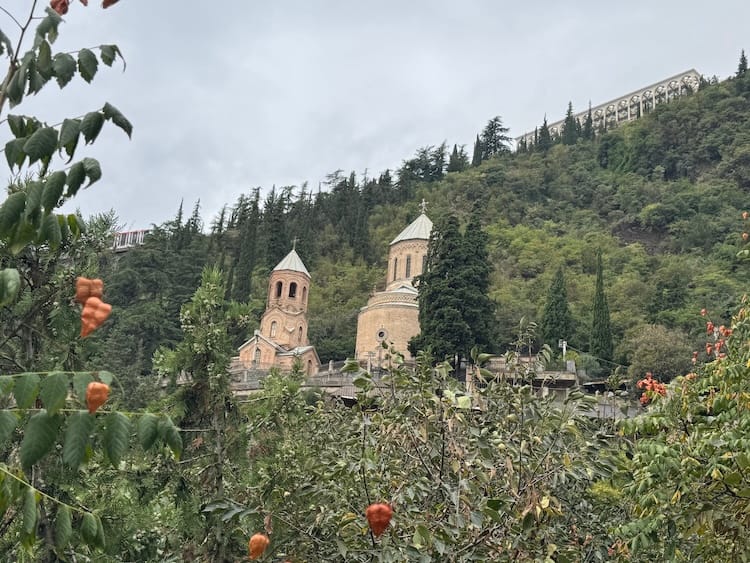
In the early 13th century, during the Georgian Golden Age that began a hundred years earlier under her great-grandfather David the Builder, Tamar was crowned queen. After dispensing with husband number one, she married again (this time her choice), harnessed a bolshy aristocracy and expanded Georgian territory. Under Tamar's rule, a blended east-west culture flourished, thus creating a distinctive Georgian style. Considered their greatest leader, she is referred to by Georgians as King Tamar. How’s that for feminism avant la lettre?
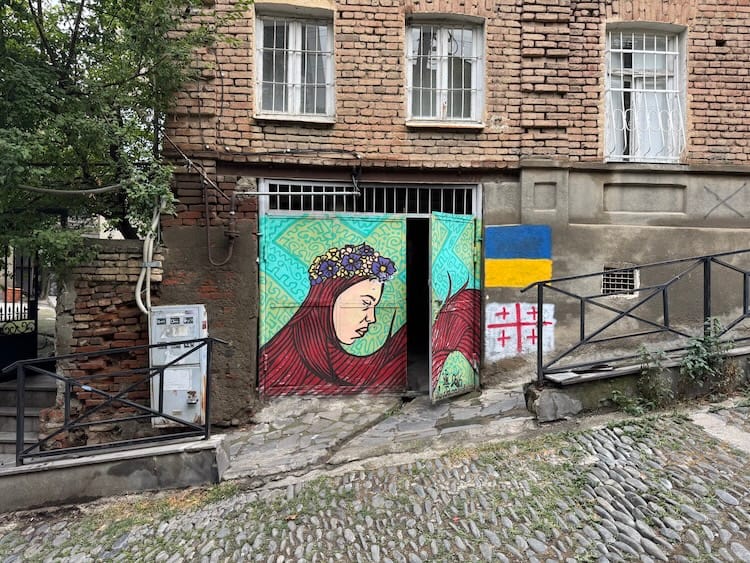
I had two days on either end of the trip to walk and walk the capital Tbilisi, a hilly, labyrinthine city with the Kura River meandering through the middle. In many ways, not much has changed since my last visit to Georgia in 2018, except more vivid street art such as the above, more tourists and the unchecked flow of electric scooters (gasp). It remains a study in contrast, where new asserts itself over old...
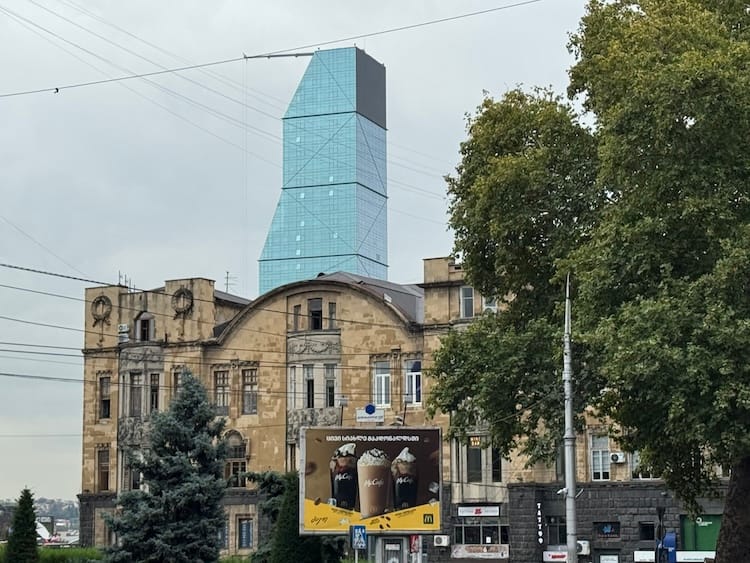
...but where the old holds its own...
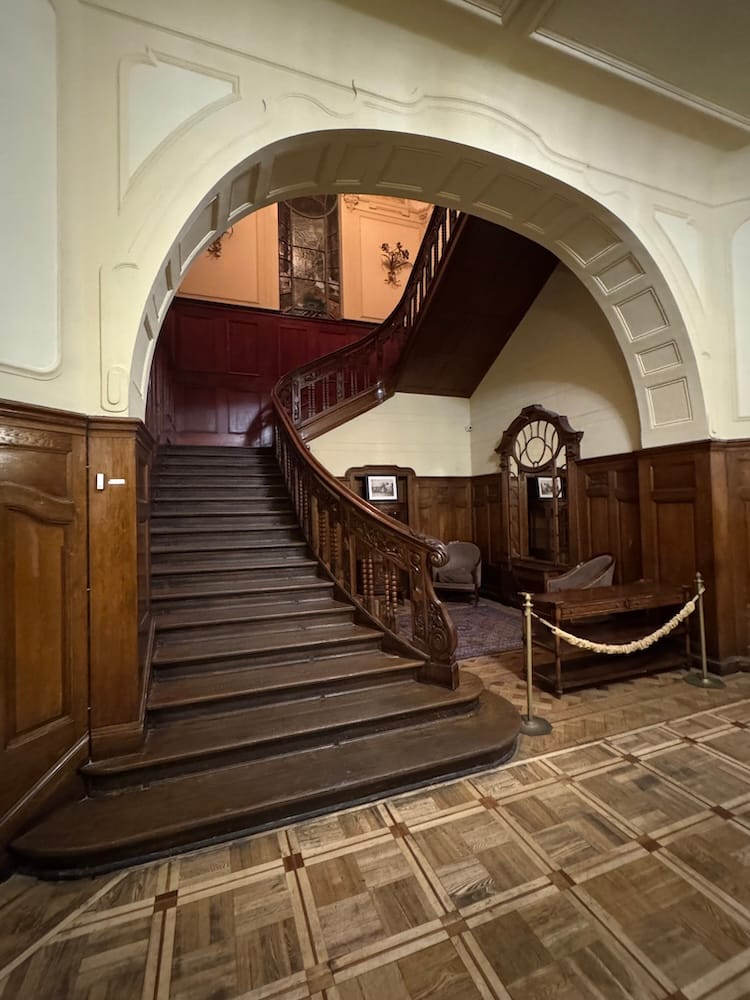
...where ramshackle courtyards that tweak a nostalgic nerve...
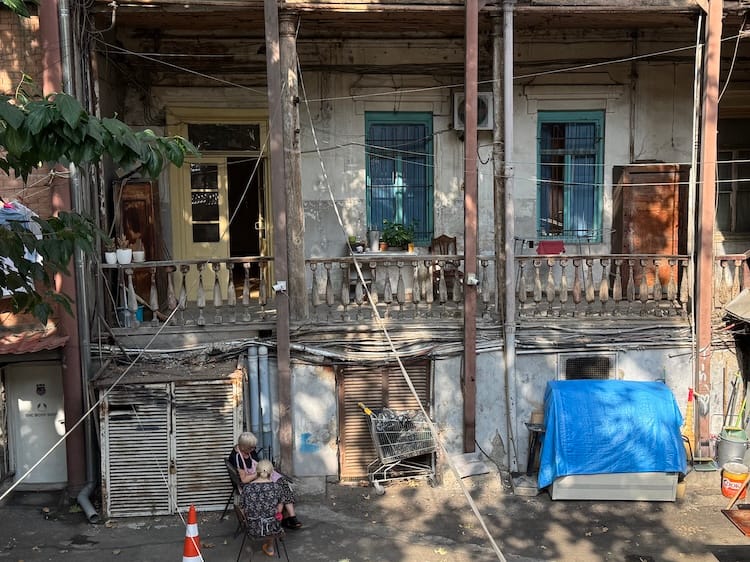
...are right next door to towers of modern capitalism...

...that in turn rub shoulders with more traditional commercial practices...
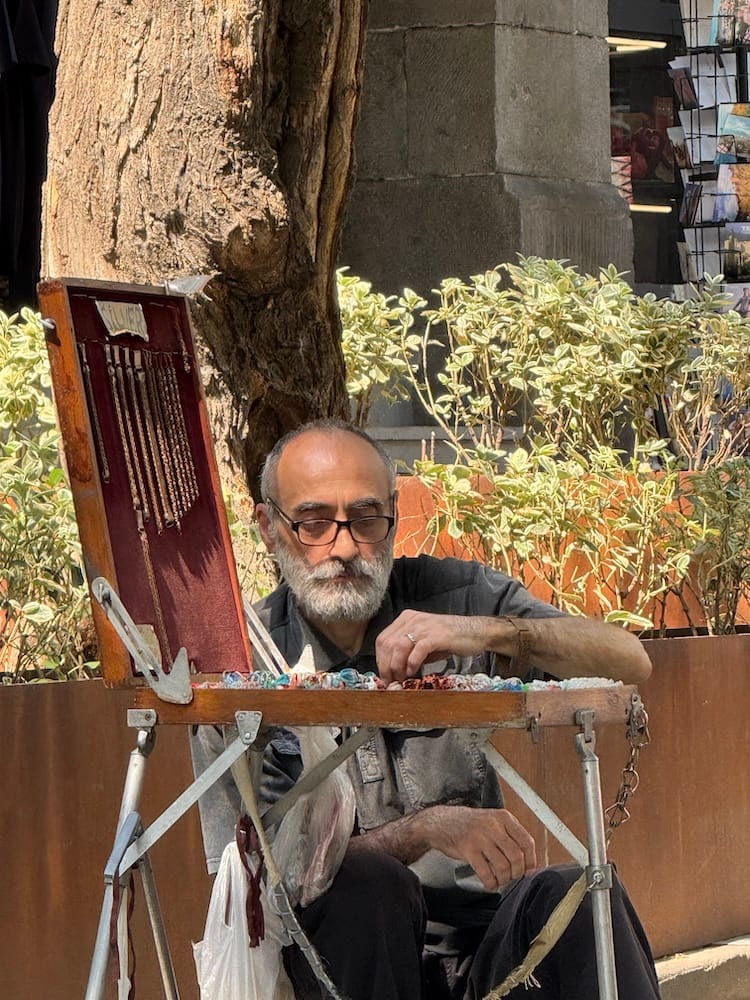
Everywhere the food - I've never had a bad Georgian meal - has only improved.
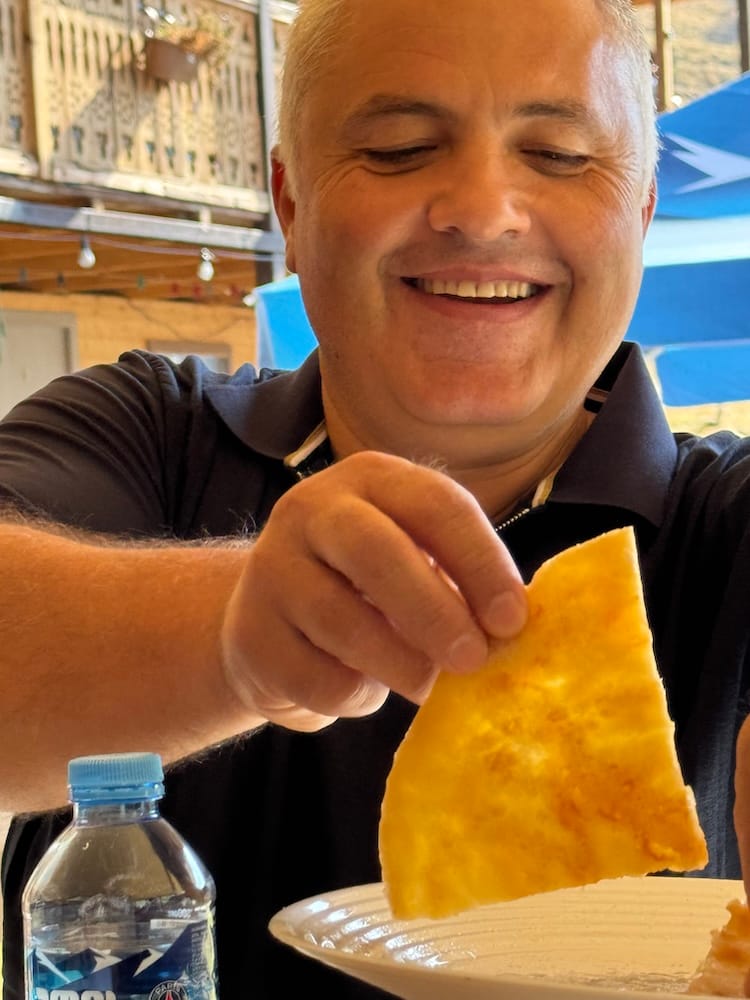
Though this time, besides much excellent traditional fare such as the above khatchapouri (considered the national dish), we were treated by our hosts to two dinners (one at the Restaurant Littera, staircase shown above) cooked by the inspirational chef Tekuna Gachechiladze, who has been called the "godmother of Georgia’s culinary revolution" (NB the gender of this contemporary game changer).
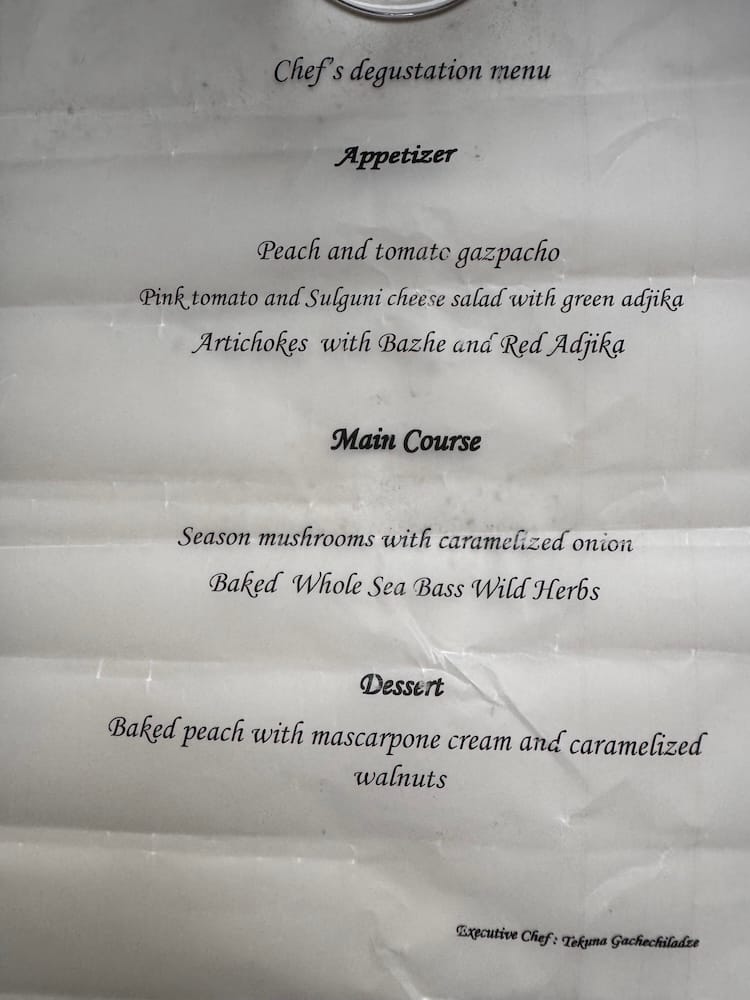
We spent the middle days in the region of Kakheti, the fruit and veg basket of Georgia (best tomatoes in the world) and the heart of its winemaking.
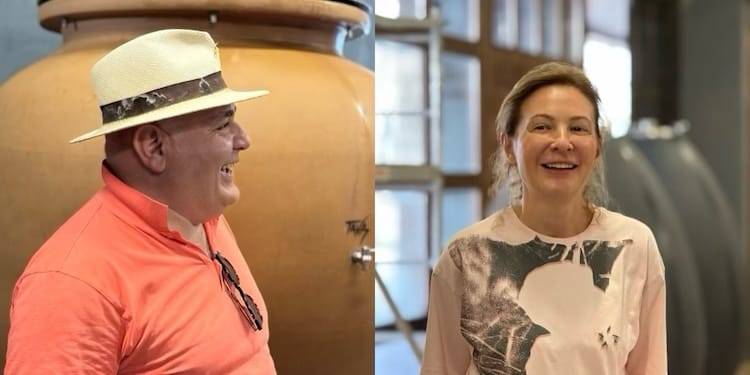
If there is a sure sign that Georgia believes in its future as well as its past, it is our CEO host Irakli who has recently turned passionate vintner. He and his wife Keti (above) bought a vineyard several years ago, and we were invited to view the vines, taste some of its first (very promising) vintages and eat yet another haute cuisine dinner.
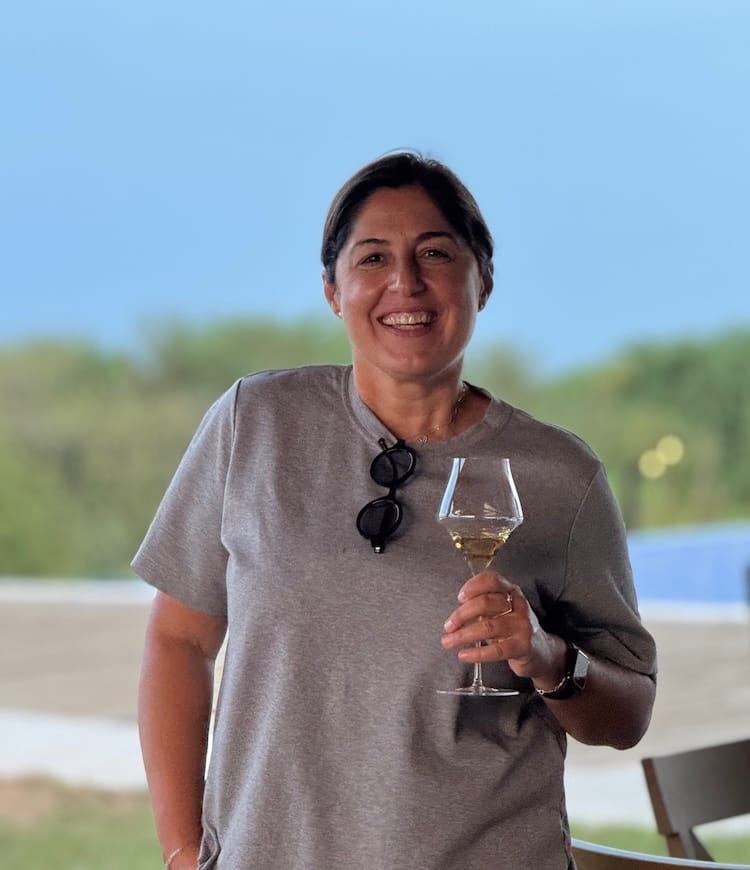
It was from Kakheti that we flew to Tusheti, a remote region that has no power lines or municipal sanitation, just sparsely populated old slate villages and abundant beauty. When David and I went hiking there on my first trip to Georgia in 2009, we were driven in a rickety, four-wheel drive over a treacherous track. It took six hours to travel 50 km/30 miles, and we were often holding on for dear life whilst peering at the void from the windows of the aged vehicle. Which is why this time we went by helicopter, an experience so thrilling that I must share with you this helicopter's-eye view of the sensual mountain contours:
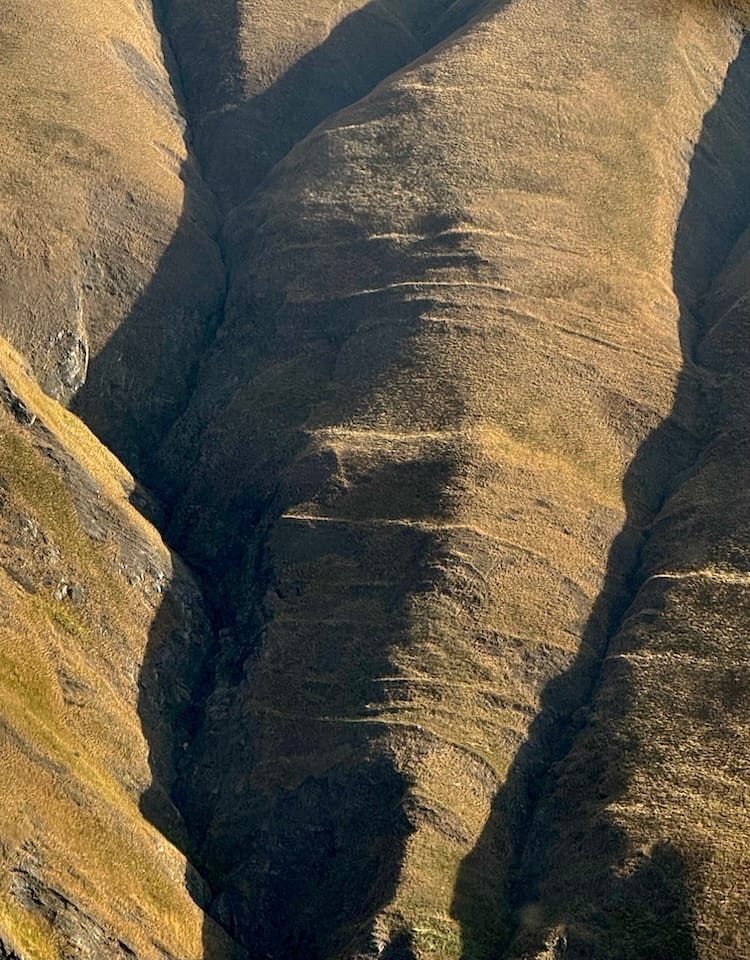
While in Kakheti, we stayed at the sophisticated Tsinandali hotel-concert-winery complex that was built on the former estate of the poet Alexander Chavchavadze (his house is now a museum and can be visited).
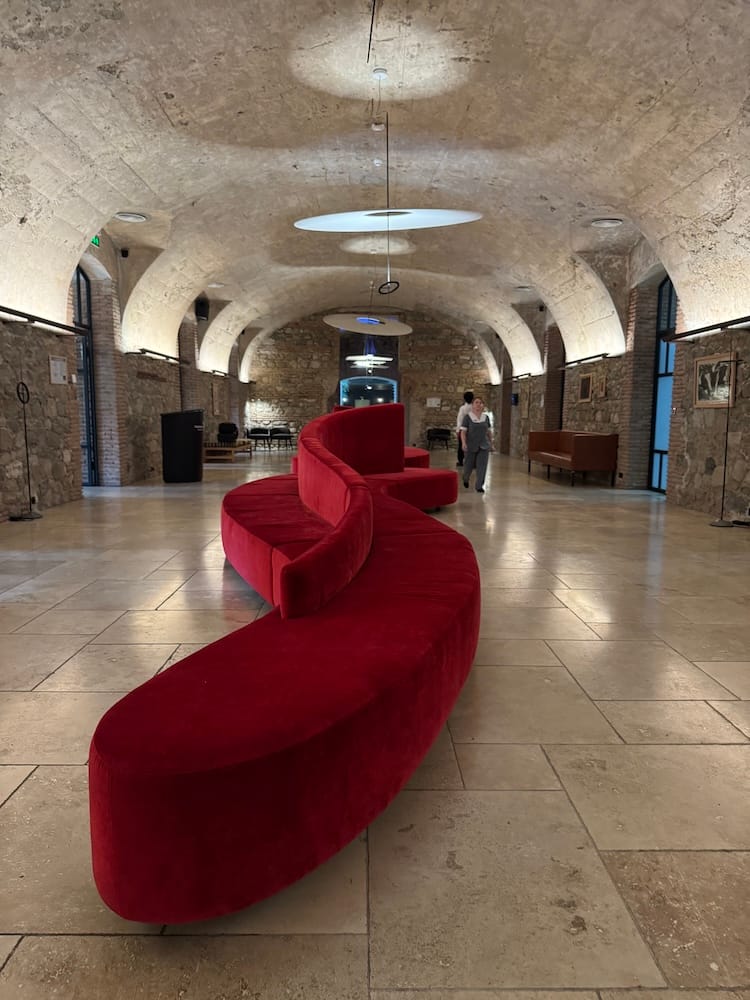
And to there we returned Saturday night from Tusheti to hear - change of register - the world-renowned Sir András Schiff perform piano pieces by Bach, Mozart, Haydn and Beethoven. Sir András, who has cancelled his US concerts in protest at the current politics, spoke about the pieces he was playing and the thread that ran through European classical music, the connection that practically made it a common continental project. He praised the principles of collective, liberal society.
Which brings me to Georgia's biggest challenge today. Amidst all this cultural and financial dynamism lurks a revanchism, a harking back to the old days (sound familiar?). While many Georgians value democracy and ardently wish to be part of Europe...
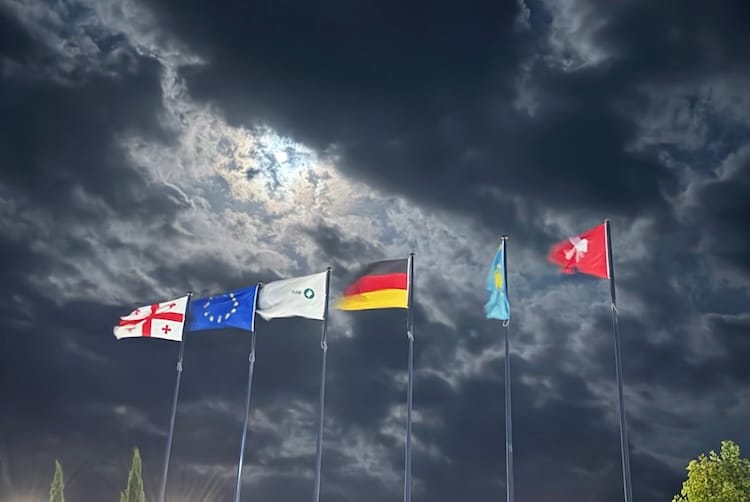
...many others beg to differ, think their large neighbour to the north is the answer.
Russia has been a sometimes desired, more often imposed presence in Georgia since the 17th century.
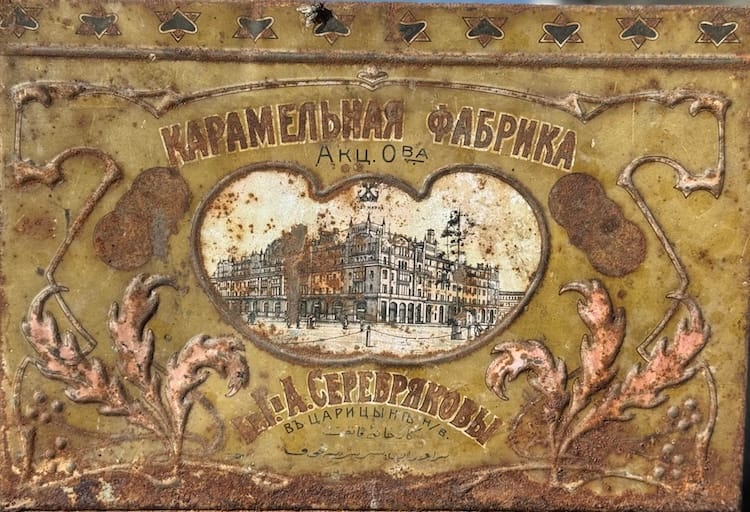
In the 19th century, Georgia served as the playground for the tsars. In 1921, it was sucked into the Soviet Union. Three years later, it gave the occupiers their new leader, Gori-born Joseph Dzhugashvili, aka Stalin. Following the break-up of the USSR and after much internal turmoil, the 2003 Rose Revolution moved the country in a firmly democratic direction.
But Russia will not leave Georgia alone. It invaded and occupied Abkhazia in 1992-93 and did the same thing to South Ossetia in 2008. In the 2012 legislative elections, the shadowy Georgian-born, Putin-friendly oligarch Bidzina Ivanishvili backed the winning Georgian Dream party, which is still in power. Though he holds no official position, he pulls the strings...
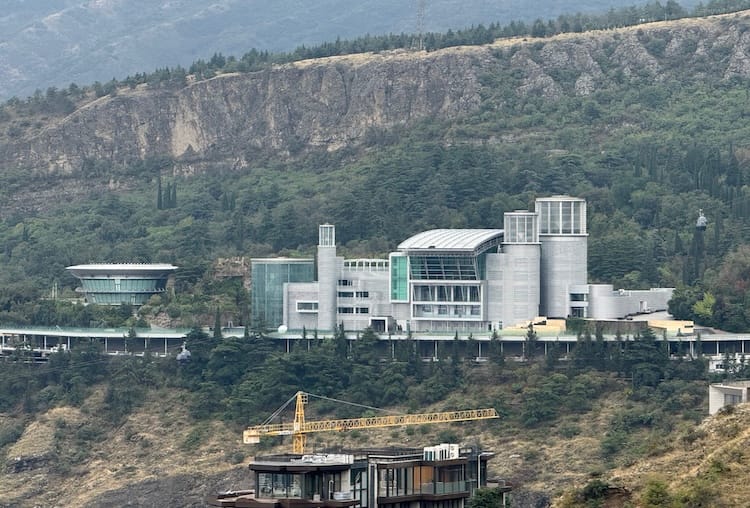
...that continue to unravel democracy and promote populism (sound familiar?), ever more so since the war began in Ukraine. In 2023-24, the "Law on Transparency of Foreign Influence" requiring NGOs with more than 20% foreign income (David's CNF, for example) to register as "foreign agents" brought tens of thousands into the streets of Tbilisi. But to little avail: since then Georgia has officially suspended its application to join the European Union. Visible opposition has been reduced to this small camp at the Georgian Parliament...
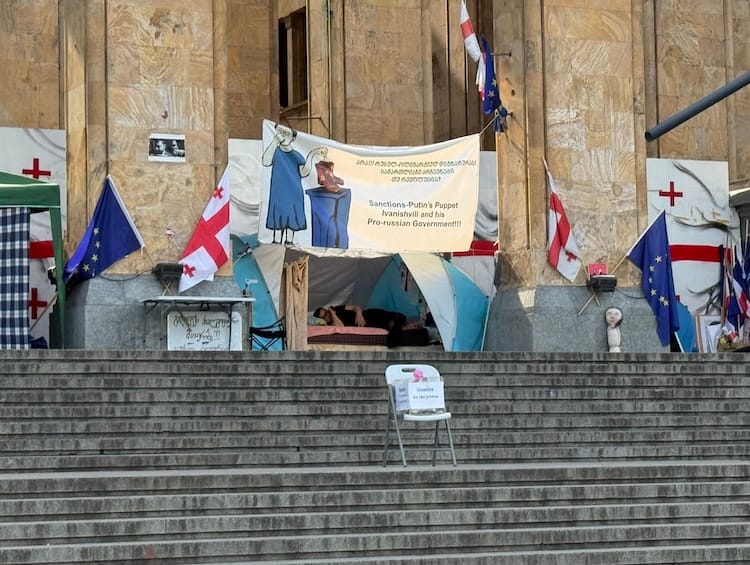
Today Georgia has it all - high culture, a dynamic economy, unspoiled nature - yet it is teetering on a political knife's edge. Then again, though the sharpness of the blade may vary, which free-ish country in the year 2025 isn't?.
